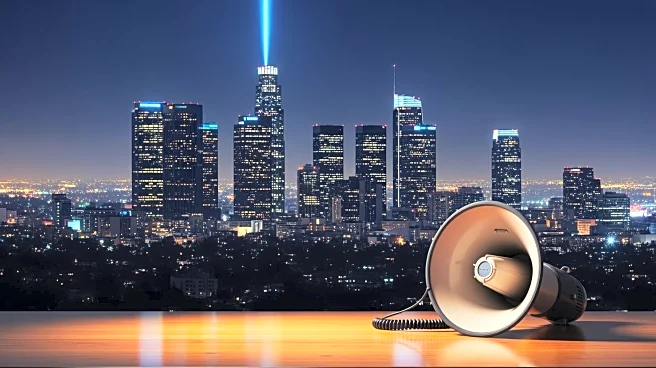Rapid Read • 8 min read
Federal agents and National Guard members have been deployed across Washington, D.C., as part of President Trump's initiative to reduce crime in the city. This move involves various federal agencies, including the Drug Enforcement Administration (DEA), Homeland Security Investigations (HSI), and the Bureau of Alcohol, Tobacco, Firearms and Explosives (ATF), working alongside local police. The National Guard has activated 800 members for missions such as monument security and community safety patrols. DEA agents are involved in traffic stops and enforcement efforts, while HSI agents are conducting traffic checks. The United States Park Police, part of the National Park Service, are assisting with traffic stops. This deployment is part of a broader effort by President Trump to take control of the city's police department, a power granted by the District of Columbia's status as a federal district.
AD
The deployment of federal agents and National Guard members in Washington, D.C., signifies an increased federal involvement in local law enforcement, raising questions about the balance of power between federal and local authorities. This initiative could impact public perception of federal law enforcement's role in community safety and crime prevention. The involvement of multiple federal agencies highlights the complexity and scale of the operation, potentially setting a precedent for future federal interventions in local policing. The move may also influence ongoing discussions about federal authority and its limits, especially in areas traditionally managed by local governments.
The federal takeover of Washington's police department is limited to 30 days unless extended by Congress. The effectiveness of this initiative in reducing crime will likely be scrutinized by both local officials and the public. Potential reactions from civil society groups and political leaders could shape future policies regarding federal involvement in local law enforcement. The deployment may also prompt discussions on the long-term implications for community relations and trust in law enforcement.
The increased federal presence in Washington, D.C., could have broader implications for civil liberties and privacy concerns, as surveillance and enforcement activities expand. The initiative may also affect the city's political dynamics, influencing local governance and federal-local relations. Long-term shifts in law enforcement strategies and community engagement could emerge from this intervention, impacting how crime prevention and public safety are approached in urban areas.
AD
More Stories You Might Enjoy










